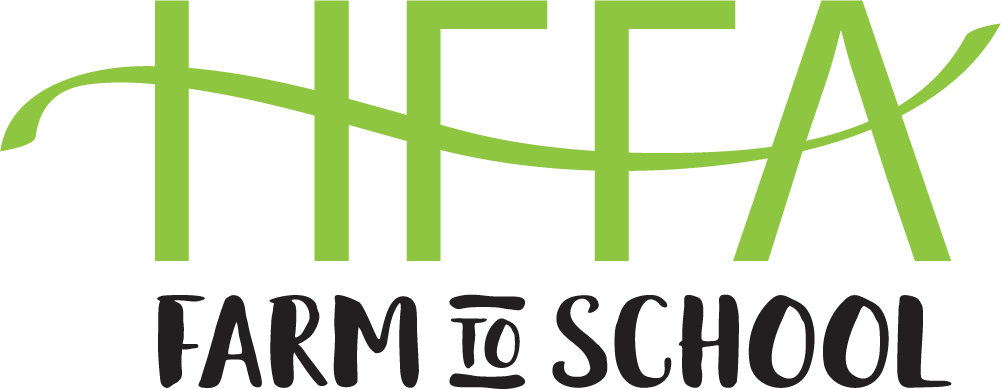Farm to School Education Workshop FAQs
- What is an Education Workshop?
An Education Workshop brings a local farmer into your classroom to explore various topics with students such as local food, food literacy, and farming life. Our workshops are offered to schools in the Headwaters region (Dufferin County and Caledon) during the school year. We have four workshops teachers can choose from, see workshop options below. Each workshop offers curriculum connections, lesson plans and suggested extension activities.
Our booking form can be found here
How long is an Education Workshop?
A workshop typically runs 80-90 minutes. Each workshop has three stations which are 20 minutes each plus time for an introduction and conclusion.
How is an Education Workshop Formated?
A whole-class introduction to the farmer and the topics that will be covered. 10 minutes
Three stations through which students rotate in groups of 6 – 8.
The K-3 Workshops include:
- “There’s no place like home” which explores local food and how plants grow. Rotations include:
a) Grandpa Harry’s Secret Granola Recipe using ingredients that grow in Ontario. Students label and bag granola portions to complete baking and eat at home with their families.
b) Seeding Local Roots making a bean seed necklace while learning what a seed needs to sprout; and Fabulous Five, making a beaded bracelet while learning what a plant needs to grow.
c) On My Farm visiting with the farmer and learning about their farm. This station will vary depending on the type of farmer booked for your workshop. For example, a vegetable farmer, a goat farmer, or a chicken farmer. - “Plants & Pollinators” which explores different plants and ways we can enjoy them and how pollination happens. Rotations include:
a) Plant Parts We Eat sorting fruits and vegetables into the parts of a plant they come from; Roots, Stems, Leaves, Flowers, Fruits and Seeds song and dance
b) On My Farm visiting with the farmer and learning about their farm. This station will vary depending on the type of farmer booked for your workshop. For example, a vegetable farmer, a goat farmer, or a chicken farmer.
c) Pollination Station learning about the role pollinators have in the world of agriculture, students will craft a bee and learn with a hands-on activity what pollination looks like.
The Grade 4-6 workshops include:
- “Know your Roots” which explores food preservation methods and how to eat in season.
a) On My Farm visiting with the farmer and learning about their farm. This station will vary depending on the type of farmer booked for your workshop.
b) Keep the Harvest Students prepare pickled carrots using a recipe to make the brine, they peel and slice Ontario carrots, and label and fill jars to take home and enjoy their “fridge pickles” with their families.
c) Mapping Local Routes involves designing a balanced meal using a local food map. - “Plant Power” which explores different parts of a plant, seed selection and ways farmers can adapt their growing plans to their land.
a) On My Farm visiting with the farmer and learning about their farm. This station will vary depending on the type of farmer booked for your workshop.
b) Super Veggie Design will involve students creating their own super vegetable exploring different traits seeds can carry such as storage capacities, disease resistance, taste, colour and growing conditions.
c) Plant Part Power Students measure ingredients and make smoothies using different plant parts and explore nutritional benefits of Ontario-grown and preserved ingredients.
A whole-class wrap-up with the farmer. This may be a question and answer period, an additional activity or a quest may be assigned as an extension activity. 10 to 20 minutes, depending on the activity selected and time available.
What does the teacher need to do?
The teacher submits the initial workshop request form and works with the HFFA Program Coordinator on booking and any special requirements for food allergies or program preferences. We also ask the teacher to divide the class into three groups for the three stations, and recruit 2 to 3 volunteers – parents or responsible Grade 8 students – to help facilitate at those stations. If possible, having name tags for your students is very helpful to our coordinator and farmer. Volunteers will have an opportunity to review the activity prior to the beginning of the workshop. We try to keep the effort for the teacher minimal during the workshop, allowing you to “float” and observe all the stations, take photos and help with room control when needed. Finally, we ask teachers to complete a feedback survey after the workshop.
Why are you offering this program?
Our goals are:
- to create connections among students, teachers and local food growers, processors and retailers in their neighbourhoods
- to make it easier for teachers to bring healthy, local food and food topics into the classroom as a tool for learning
- to grow food literacy in our communities, and encourage children to think critically about their food choices
- to promote awareness about our local food system and encourage children to consider farming careers
How much does it cost?
The price of $350 per workshop reflects the true costs for the program. We operate under a registered charity, and do not aim to make a profit with this program. Funding from the Ontario Trillium Foundation, TD Friends of the Environment and the Local Food Fund has allowed us to purchase core kit equipment.
Our costs include:
- Compensation for the farmers. Most of our farmers are passionate about what they do and love to share that passion with young people. However, we know that they would not be in a position to take the time away from the farm if not for this honorarium. We value their time and product, so we think it’s fair to pay them for it and not ask for donations.
- Food for the workshop. Granola ingredients, plant parts we eat, pickled carrots and other foods we may explore from the featured farms all have a cost. We are pleased to offer a program that goes beyond exploring foods in theory or on paper and allows students to get hands-on with real local foods.
- Consumable supplies for the activity stations: bags, containers, stickers.
- Staff time for program coordination, booking/scheduling, food shopping, preparing for and delivering the workshops, as well as processing feedback following each session.
Where did the idea come from?
Our activities have foundations in those developed by Everdale Environmental Learning Centre in their Farmers in the Schools program. HFFA representatives attended training at Everdale and worked collaboratively with the farmer-educators to develop our workshops. Programs have since been updated to reflect feedback from teachers and students who have participated in workshops. We continue to use this process to continually improve the experience for students.

CONTACT: f2s@hffa.ca
